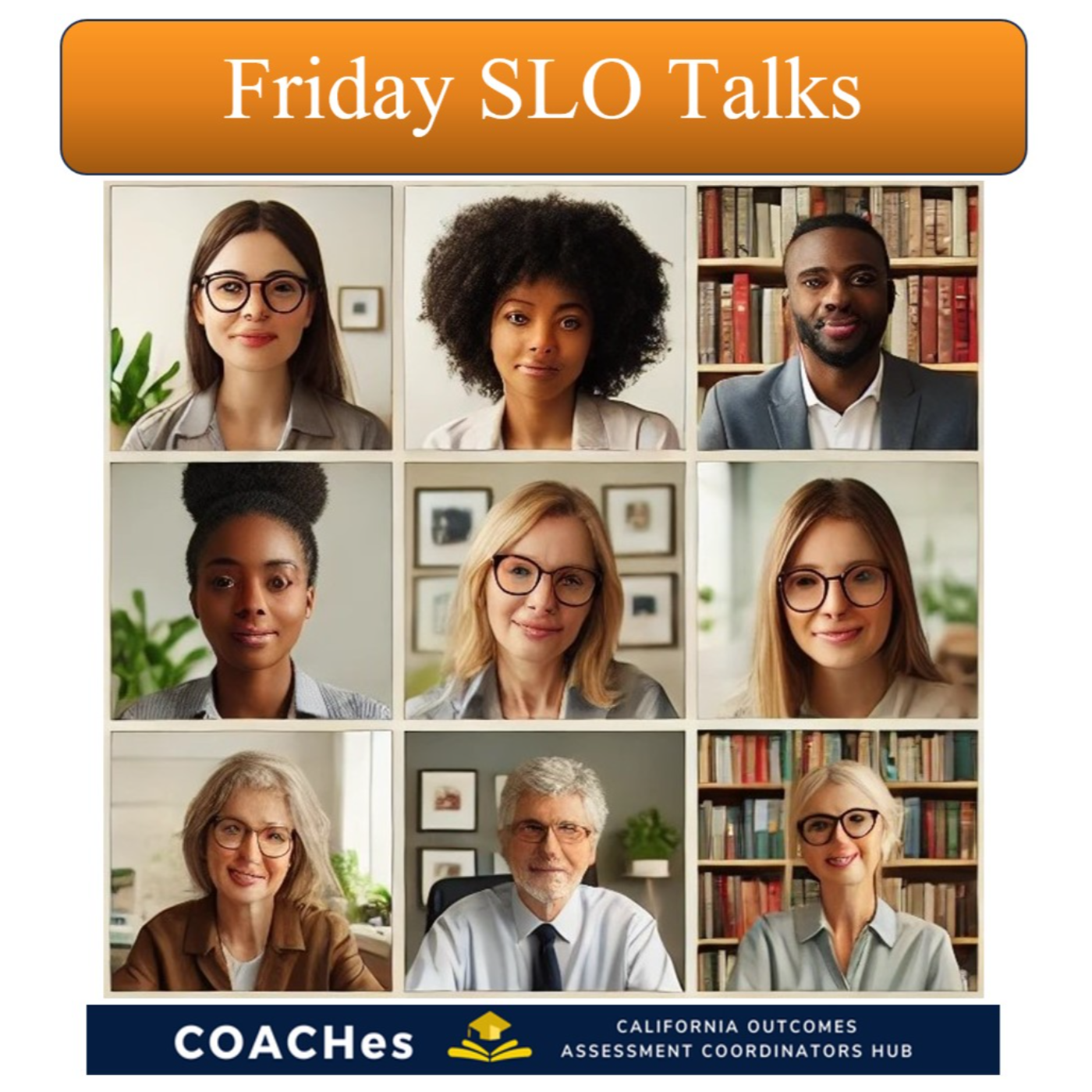Listen "From Theory to Clinical Competency: A Case Study in Authentic, Performance-Based Nursing Education"
Episode Synopsis
In this Friday SLO Talk, Jarek Janio from Santa Ana College and Enrique Jauregui from Fresno City College host a dynamic session highlighting an innovative nursing course development project from the University of Texas at Arlington (UTA). Dr. Leslie Jennings, Missina Minter, Megan Zara, and Stacy Greathouse—an interdisciplinary team nicknamed the "Motley Crew"—share their collaboration model for building a high-impact, competency-based perioperative nursing course.The panel describes how the course originated in response to the national nursing shortage, aiming to prepare students for perioperative roles in operating rooms. Dr. Jennings, a perioperative nurse with over 30 years of experience, led the design effort with the support of an instructional designer, librarians, and an OER specialist. Together, they developed an accelerated "Maymester" course, compressing a full semester’s clinical and didactic content into an intensive two-and-a-half-week experience.Stacy Greathouse introduces the "Dark Classroom" and "Motley Crew" frameworks, emphasizing collaboration, transparency, and the breakdown of traditional course design silos. Each member of the team fulfilled clearly defined roles—content specialist, learning architect, instructional technologist, accessibility specialist, and OER librarian—to ensure smooth workflow, full accessibility, and rigorous alignment with student learning outcomes.A key focus was meticulous alignment: the team employed a master course map, “Holy Hail” language (ensuring consistent terminology across outcomes, content, and assessments), and Quality Matters (QM) standards. They also integrated Open Educational Resources (OER) and accessibility reviews, while using Rice University’s Workload Estimator to help minimize hidden time constraints for students.Jennings and Greathouse explain how an international travel theme unified the course design. Students "traveled" through different stages of perioperative care, earning "passport stamps" as they progressed, with every assignment explicitly tied to course outcomes.The discussion highlights the importance of formative assessments and structured "pause points" to help students reflect and maintain mental wellness during the compressed course. Flipped classroom strategies shifted the responsibility for preparation onto students, promoting agency and ownership of learning.Attendees then engaged in breakout rooms with the "Motley Crew" members to dive deeper into key practices:OER sourcing and licensingAccessibility auditing and integrationInstructional design strategies for accelerated learningBuilding student-centered activities with tools like H5PThe session concluded with a reflection on the cultural changes needed in higher education to support collaborative course development and the critical role of advocating for institutional resources to make sustainable, high-quality programs possible. Attendees left inspired by the team's commitment to authentic assessment, transparency, and student-centered design.Key Takeaways:High-stakes, accelerated nursing education requires intentional design, transparency, and teamwork.True accessibility and OER integration enhance quality and equitable access for all students.A "Motley Crew" team structure—built on mutual accountability and clear roles—produces stronger, more resilient learning environments.Flipped classrooms and competency-based education support student agency while reducing faculty workload.Special Thanks: Thank you to Dr. Leslie Jennings, Missina Minter, Megan Zara, and Stacy Greathouse for sharing their remarkable journey, and to the Friday SLO Talks community for supporting these groundbreaking conversations on student learning outcomes.
 ZARZA We are Zarza, the prestigious firm behind major projects in information technology.
ZARZA We are Zarza, the prestigious firm behind major projects in information technology.
